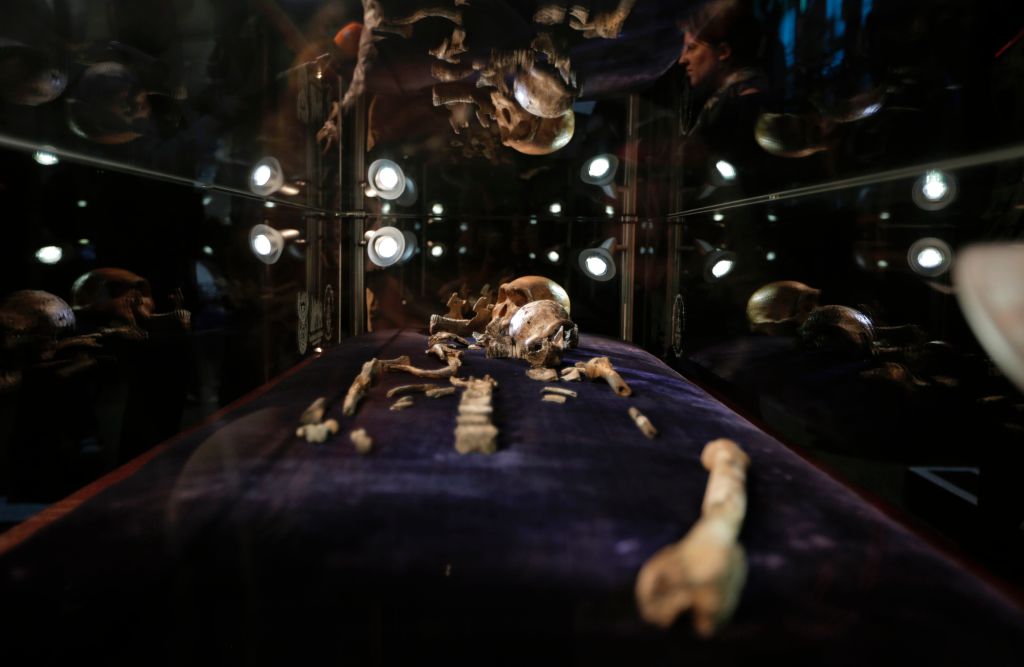Scientists claim ancient human relatives buried their dead, sparking evolution debate


A free daily email with the biggest news stories of the day – and the best features from TheWeek.com
You are now subscribed
Your newsletter sign-up was successful
Researchers believe they have discovered possible burial sites dug by a smaller-brained human ancestor over 100,000 years before the oldest known human burials, a claim that "would revise the story of our evolution," The Washington Post reported.
The scientists uncovered the possible sites while studying the Rising Star cave system northwest of Johannesburg, South Africa, where they also found drawings of triangles and squares, as well as crosshatchings, carved into the limestone. The team attributed their findings to the Homo naledi species, whose brains were three times smaller than early humans and Neanderthals. Scientists believe Homo naledi remains were first uncovered in the Rising Star system in 2015.
That a small-brained hominin partook in such humanlike rituals is quite a significant discovery, as it suggests bigger brains are not necessarily needed for more sophisticated behavior, Lee Berger, a paleoanthropologist at the University of Witwatersrand in Johannesburg and lead scientist of the project, told The New York Times. "That would mean not only are humans not unique in the development of symbolic practices, but may not have even invented such behaviors," he said in a statement.
The Week
Escape your echo chamber. Get the facts behind the news, plus analysis from multiple perspectives.

Sign up for The Week's Free Newsletters
From our morning news briefing to a weekly Good News Newsletter, get the best of The Week delivered directly to your inbox.
From our morning news briefing to a weekly Good News Newsletter, get the best of The Week delivered directly to your inbox.
Announced at the Richard Leakey Memorial Conference at Stony Brook University in New York and in three online papers, the research team's claims have "triggered the kind of fierce debate that has followed H. naledi since its discovery made headlines in 2015," the Post wrote. Some experts who weren't a part of the study are skeptical that the evidence proves the species was intentionally burying its dead. Others aren't convinced the engravings are thousands of years old. But if the study's claims are valid, they would "overthrow the dogma that burial of the dead is the sole province of our species, Homo sapiens," the Post added.
Michael Petraglia, the director of the Australian Research Center for Human Evolution, told the Times he is "highly optimistic that [Homo naledi] have burials, but the jury is still out." He said he wanted to see a more detailed analysis of the sediment at the sites before drawing any conclusions, but "[t]he problem is that they're ahead of the science."
A free daily email with the biggest news stories of the day – and the best features from TheWeek.com
Theara Coleman has worked as a staff writer at The Week since September 2022. She frequently writes about technology, education, literature and general news. She was previously a contributing writer and assistant editor at Honeysuckle Magazine, where she covered racial politics and cannabis industry news.
